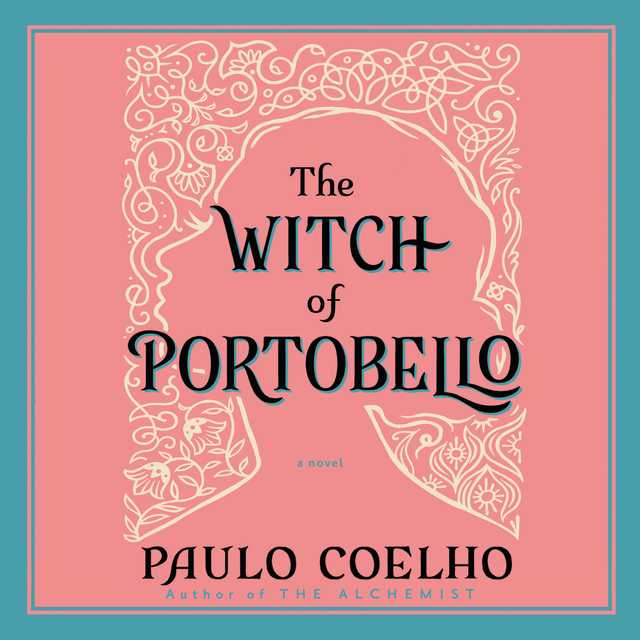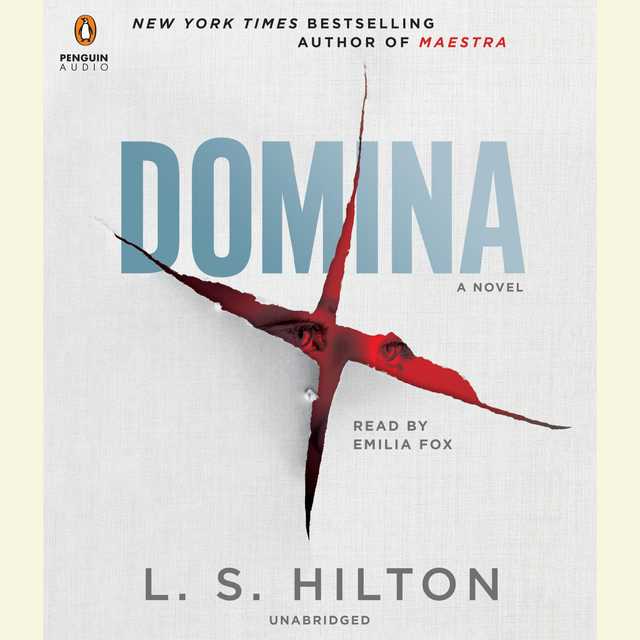The Witch of Portobello Audiobook Summary
How do we find the courage to always be true to ourselves–even if we are unsure of who we are?
That is the central question of international bestselling author Paulo Coelho’s profound new work, The Witch of Portobello. It is the story of a mysterious woman named Athena, told by the many who knew her well–or hardly at all. Like The Alchemist, The Witch of Portobello is the kind of story that will transform the way readers think about love, passion, joy, and sacrifice.
Other Top Audiobooks
The Witch of Portobello Audiobook Narrator
Rita Wolf is the narrator of The Witch of Portobello audiobook that was written by Paulo Coelho
Paulo Coelho, born in Rio de Janeiro in 1947, is one of the bestselling and most influential authors in the world. The Alchemist, The Valkyries, Brida, The Fifth Mountain, Eleven Minutes, The Zahir, The Witch of Portobello, Veronika Decides to Die, The Winner Stands Alone, Aleph, Adultery, and Hippie, among others, have sold over 320 million copies worldwide.
About the Author(s) of The Witch of Portobello
Paulo Coelho is the author of The Witch of Portobello
More From the Same
- Author : Paulo Coelho
- The Spy
- Aleph
- Warrior of the Light
- Brida
- Manuscript Found in Accra
- Publisher : HarperAudio
- Abraham
- American Gods [TV Tie-In]
- Dead Ringer
- House of Sand and Fog
- Prey
The Witch of Portobello Full Details
| Narrator | Rita Wolf |
| Length | 8 hours 9 minutes |
| Author | Paulo Coelho |
| Category | |
| Publisher | HarperAudio |
| Release date | November 27, 2007 |
| ISBN | 9780061450068 |
Subjects
The publisher of the The Witch of Portobello is HarperAudio. includes the following subjects: The BISAC Subject Code is Contemporary Women, Fiction
Additional info
The publisher of the The Witch of Portobello is HarperAudio. The imprint is HarperAudio. It is supplied by HarperAudio. The ISBN-13 is 9780061450068.
Global Availability
This book is only available in the United States.
Goodreads Reviews
Julia
November 01, 2021
This book *really* made me think about who I am and where I am going, and who I want to be as a woman, a wife, a soon-to-be-mother, a daughter, and a human.I didn't always like Paulo Coelho's work. I tried to read The Alchemist in college and the novel just didn't do it for me. But a friend recommended Veronika Decides to Die to me while a loved one was in the hospital for depression and I was struggling to understand what might be happening in there, and ever since, Coelho has been one of my obsessions.When I picked up The Witch of Portobello, I didn't know quite what to expect. The synopsis said "How do we find the courage to always be true to ourselves—even if we are unsure of whom we are? That is the central question of international bestselling author Paulo Coehlo's profound new work...""Oh. Profound," said the skeptic in me. "We'll just see about that."But all I know is this...the protagonist of the book, Athena, follows a winding path to enlightenment in the form of a female deity. And along the way she struggles to transcend society's expectations of her. The book is about the power that everyone has to find their own spirituality and fight against the norm. And in spite of myself, the novel made me feel able to make my own decisions, both practical and spiritual.Coelho uses a number of narrators to flesh out Athena's story, and these differing perspectives add a real depth to the story line. As a reader, you like some narrators and dislike others, which gives you the ability to take what you like from each and leave the rest, creating your own picture of Athena as you go.This is a book to be read slowly and with a great deal of self-reflection. It's not a breezy beach vacation read, but it's worth the work. It's a book about soul, so get ready to grapple with your own.
Ahmad
May 28, 2021
A Bruxa de Portobello = The witch of portobello, Paulo CoelhoThe Witch of Portobello is a fiction work by Brazilian writer Paulo Coelho published in 2007, about a woman born in Transylvania to a Romani mother in a gypsy tribe without wedlock. The central character is abandoned by her birth mother because the father was a foreigner (gadje) and later adopted by a wealthy Lebanese couple.عنوانهای چاپ شده در ایران: «ساحره پورتوبلو»؛ «ساحره ی پورتوبلو»؛ «جادوگر پورتوبلو»؛ تاریخ نخستین خوانش روز نخست ماه ژوئن سال 2008میلادیعنوان: ساحره ی پورتوبلو؛ نویسنده: پائولو کوئیلو؛ مترجم: آرش حجازی؛ تهران، کاروان، چاپ اول تا سوم 1386؛ در 295ص؛ شابک 9789648497946؛ چاپ چهارم تام ششم 1387؛ موضوع: داستانهای نویسندگان برزیلی - سده ی 21م عنوان: ساحره پورتوبلو؛ نویسنده: پائولو کوئیلو؛ مترجم: مسیحا برزگر؛ تهران، آسیم، 1386؛ در شانزده و 260ص؛ شابک 9789644183898؛ چاپ دیگر تهران، ذهن آویز، 1387؛ در چهارده و 260ص؛ شابک 9786005219135؛عنوان: ساحره ی پورتوبلو؛ نویسنده: پائولو کوئیلو؛ مترجم: سینا زیدی؛ تهران، افراز، 1388؛ در 302ص؛ شابک 9789642837410؛ عنوان: ساحره پورتوبلو؛ نویسنده: پائولو کوئیلو؛ مترجم: میترا میرشکار؛ تهران، پر، کوشش، 1388، در 340ص؛ شابک 9789648007241؛ چاپ دیگر تهران، نوین، 1392، شابک 9789646325456؛ عنوان: جادوگر پورتوبلو؛ نویسنده: پائولو کوئیلو؛ مترجم سوسن اردکانی؛ تهران، نگارستان کتاب، 1388، در 419ص؛ شابک 9786005541243؛ یتیمی که مادرش او را در «ترانسیلوانی» سر راه گذاشت، کودکی که زن و شوهری «لبنانی» او را به فرزندی پذیرفتند، «آتنا» ازدواج میکند، بچه دار میشود، از شوهر جدا میشود، حالا که مادر شده، مدام به زنی میاندیشد که او را زاد، برای کشف این راز در «رومانی»، به میان کولیها میرود؛تاریخ بهنگام رسانی 07/03/1400هجری خورشیدی؛ ا. شربیانی
Lynn
January 16, 2009
I literally could not put this book down. While I'm a book lover and devour many books, I consider this one to be a very special treat.
Sara
January 08, 2021
Also das ist echt ein Buch das wie ein Echo „nachhallt“ und das man erst einmal verarbeiten muss, nachdem man es gelesen hat. Absolutes 5-Sterne Buch. Coelho ist ein Meister
⊱ Poppy ⊰
August 17, 2016
‘The Witch of Portobello’ by Paulo Coelho is not a straight biographical book or the opinion of the writer on its main protagonists. It’s what the other people transcribe the writer about the women, the Witch of Portobello. “No one lights a lamp in order to hide it behind the door……..No one sacrifices the most important thing she possesses: love. No one places her dreams in the hands of those who might destroy them. No one, that is, but Athena.” It’s the story of Athena, or Sherine Khalil, who was always ready to walk out of the door from the comfort zone and confront the winds, the thunder and the lightning that life can bring, again and again, all by her own choice.According to the writer, there are four classic archetypes of women who search for a meaning to their lives or for the path of knowledge:The Virgin (not speaking of sexual virgin): One whose search springs from her complete independence and everything she learns is the fruit of her ability to face challenges alone.The Martyr: The one who finds her way to self-knowledge through pain, surrender and suffering.The Saint: The one who finds her true reason for living in unconditional love and in her ability to give without asking anything in return.The Witch: The one who justifies her existence by going in search of complete and limitless pleasure.“Normally, a women has to choose from one of these traditional feminine archetypes, but Athena was all four at once”Shreine Khalil, known as Athena was born in Romania and her parents, a successful industrialist family of Beirut adopted her, as their much loved, much-wanted daughter, who grew in wisdom and beauty. From an early age she had a strong religious vocation and knew all the gospels by heart, which was a blessing and a curse. She had the secret desire to become a saint someday. She had everything one can ask for, and yet it didn’t satisfy her restless soul. Her adopted mother, who was always ready to take care of her, give her all the love and comfort she could, want to see her win in whatever she does, though didn’t understand her, who felt that “a mother doesn’t have to understand anything, she simply has to love and protect”. A father, who loved her, was ready to be by her side in whatever she does and believed and respected her opinions as most correct even when she was just a child. The best of education that she left before completing; got married and divorced with a son in twenty; left the Church, on which she had deep faith from her childhood, after it forbade her from receiving sacrament, due to her divorce; a good job in a bank what she left when she was being just more than successful; took the job of selling land in dessert and left that too when she was earning more than enough, a successful Journalist, whom she left, who was ready to leave everything to love her. She was a restless soul, whom the success and comfort couldn’t content, who was learning all her life to suffer in silence, abandoned again and again by her birth mother, then by her husband and then by the Church she was so attached to, was trying to understand the meaning of life, through dance reaching Vertex and through calligraphy and passing this energy, the secret of rejuvenation to everyone else.She went to find her birth mother when she realized the existence of blank spaces in her life. “Music only exists because pauses exist, and sentences only exist because the blank spaces exist” It’s the blank spaces which gives meaning to a sentence, the pauses which make music. There are blank spaces in everyone’s life since no one can keep active twenty four hours a day. But one needs to understand these blank spaces to make one’s soul composed and calm.Vertex is the culminating point of life, the goal of all those who, like everyone else, make mistakes, but who, even in their darkest moments, never lose sight of the light emanating from their hearts. The Vertex is hidden inside us, and we can reach it if we accept it and recognize it.Calligraphy, as written in the book, is the search for perfect meaning of each word through writing, the writing which wasn’t just the expression of a thought, but a way of reflecting on the meaning of each word. A single letter requires us to distil in it all the energy it contains, as if were carving out its meaning. It teaches objectivity and patience, respect and elegance.She kept constantly destroying and rebuilding herself. Everything in her life had followed the same pattern: from lost to found; from divorce to new love; from working in a bank to selling real estate in the desert. There was only one thing which remained intact, that was her son. He was the only connecting thread.Nothing could contend her restless soul; nothing could bring her peace of mind, neither even reaching Vertex through dancing or calligraphy. And finally she went to teach people something she didn’t know, that’s when she was bringing the soul to the surface, and speaking what the eternity, depicted as ‘the Mother’ in the book, wants to reveal through her.Athena was bringing to the surface the immensely rich world we carry in our souls, without realizing that people aren’t yet ready to accept their own powers. That’s why the writer describes her as a woman of twenty-second century living in the twenty-first, and making no secret of the fact either. That was her biggest problem. “……..perhaps you came too early, and people aren’t ready yet”. The book talks about free love, a river which overflows its banks, which is above all the concept we associate with love, like desire, possession or betray. “Love fills everything. It cannot be desired because it is and end in itself. It cannot betray because it has nothing to do with possession. It cannot be held prisoner because it is a river and will overflow its banks. Anyone who tries to imprison love will cut off the spring that feeds it, and the trapped water will grow stagnant and rank” “Love isn’t desire or knowledge or admiration. It’s a challenge; it’s an invisible fire” “Love is not a habit, a commitment, or a debt. It isn’t what romantic songs tell us it is-love simply is.………………….No definitions. Love and don’t ask too many questions. Just love.” “The energy of love can never be lost-it’s more powerful than anything and shows itself in many ways.” ‘Two roads diverged in a wood, and I –I took the one less traveled by,And that has made all the difference.’ (Robert Frost) That’s the path the Witch of Portobello was following throughout her life, until she was brutally murdered.
Amy
June 27, 2008
Picked up this book at SFO before boarding my plane to Hawaii. Seemed like a total accident, given I had never heard of it and wasn't planning to buy it. But having read it, I acknowledge this as an example of the belief "there are no accidents."From early childhood, I have been keenly aware of an accessible spiritual world, but lacked the encourgement or guidance to foster my ability to contact that world.While the underlying message of this book is exploring the answer to the question "What is Love?" (answer: Love IS.), I found the exploration of the feminine side of divinity, of God to be refreshing and timely in my own life. We have all heard stories of women in particular who possess "abilities." I call it intuition. But why can't we accept these things as natural and beautiful? And why can't we encourage girls and women to strenghten their abilities to serve mankind? And why does dogma seek to destroy the credibility of these gifts?I have always had a very strong spiritual sense, rooted in the Catholic teachings, as this is how I was raised. I genuinely find comfort in the rituals of the religion, but find myself very at odds with the "Church" and it's doctrine as defined by mortal men over the centuries.These rigid and exclusionary "rules" were written by men, many of whom were imperfect, fearful, vengeful, ruthless, dishonest, power-hungry, etc. I find so many of the "rules" to be in direct conflict with Jesus' teachings, with passages from the Bible (which we also must remember was a) written by mortal men to the best of their recollection and b) was assembled by a group of men later on who cherry-picked gospels to support the doctrine they personally crafted.)But in general, we know Jesus was an amazing man who lived his life to include all people, not to exclude them. He generally traveled in the lowest of circles, reaching out to the poorest, sickest, most deranged souls in need of a lift up. Most of all, he never judged others. And I have found the Catholic Church and it's devoted followers to be some of the most judgemental people. Sad.The Catholic Church has let me down, really let me down on several important ocassions. The last straw being when several Catholic churches/priests refused to marry me and my fiancee at my Mother's (devoted Catholic) bedside a few days before she passed away, their reason being that we had not completed the six-month marriage instruction (which by the way, was something constructed by the local arch diocese recently and is not something that was dictated by God)--the priests admitted a fear of backlash within their own hierarchy should our marriage ever be dissolved. Basically, they were afraid for their own personal position within the Church.Here was a chance for the Church to do something really beautiful for my whole family, most especially my Mother, and they shut us out. Just like the people at the Inn who shut the door on Mary & Joseph when they needed a place to stay for Christ's birth. This is not a Church of love or compassion. It is a Church of fear, judgement, and exclusion.We chose to marry in a Unitarian Church, one with a strong Gay following. Our priest was a memeber of the White Robed Monks of St. Benedict, a wonderful group of priests, many former Roman Catholic priests, who have decided to continue their ministry of the Old Dutch Cathlolic practices, while being able to marry and have families. Theirs is a ministry of inclusion. They do not discrimiate against anyone. They include everyone, as Jesus would. They offer Communion to all people, regardless of religion or status (e.g. have you had confession this week?). Our wedding could not have been truer to who we are. We crafted a ceremony with traditional Cathlolic rituals and prayers, but were also sure to include all of our friends of varying religions, backgrounds, and lifestyles. And I was thankful we didn't go down the typical path of lying about who we are(e.g. pre-marital sex, living with my fiancee, etc) to get married in a Church that believes these things to be sinful and unacceptable. Why would I want to be part of a Church who would judge me like that? Seems pretty hypocrtical to me. And while I am the first to admit I am a flawed and imperfect person, I have always been honest. About everything, and perhaps to a fault. But I don't lie. Ever.I struggle with the disappointment and hurt I have felt at the hands of the Church. I don't know if I will ever be able to understand it and fully embrace the Church again. Yet I want my children baptized Catholic. I suppose I feel that eventually the Church will see the error of their ways. I digress. Paulo Coelho has a similar perspective and that perspective is woven throughout his writing. I can't wait to read his other books. There is a lot of room for growth thinking about these things. I look forward to my evolution.
Ron
August 18, 2022
I was undecided before reading other's reviews. I am going along with Julia and Ana and giving it 5 stars. A story about an adopted woman who is seeking truth and not finding it in traditional society. She discovers she is drawn to some of the old feminine spiritual practices and ends up teaching those to others. One thought hit me - when someone retires everyone congratulates him on a brilliant career, on the legacy he leaves behind him...but no one will have time for him anymore - life flows on and everyone is caught up in that flow. I discovered when you move to a different part of the country, very few of your friends stay in contact with you. You are no longer part of their flow. Sad. One comment I laughed at but could relate to is when the journalist says "I'd be capable of doing almost anything even leaving the woman I was living with, but I drew the line, of course, at giving away my books" I, and many who read can identify with that.Prepare for a very surprise ending.
Mohamed
August 23, 2013
when you read to Paulo Coelho you feel happiness, this is what one newspaper wrote on Coelho books. Every time I read one of his book i feel that and I learn some thing new.Mainly I learned from "the Witch of Portobello" how to feel gabs, how to make sens to your life by seeking for aim behind it. The life will be harsh on us but like forging, the iron should be exposed to fire, hammer and cold water in order to get its final shape and play its role in life.
Indri
May 04, 2011
#2011-13#Perempuan mandiri dan anak lelaki, apa yang di pikiranmu? Seorang perempuan yang mudah ditaklukan? Bukan. Ia lebih tegar, lebih berani untuk menantang kehidupan. Dan ia berkata, ini bukan untuk dirinya, ini untuk anakku. Perempuan yang menari untuk memberikan jiwa pada kehidupan yang kosong. Karena di dalam dirinya sendiri ada yang hilang, dan ia butuh pengisi di dalamnya. Maka ia berkelana, mengeluarkan energinya, berbagi pada yang lain, memberikan kebahagiaan yang ia juga tak punya. Karena sebenarnya jiwanya kosong. Karena apa yang ia pikir dilakukan ini yang ia ingini, tapi bukan, ini hanyalah pengisi sementara.Lalu ia tetap mencari. Perjalanan-perjalanan dilakukan. Terkadang bertanya, apakah lelaki pengisinya? Tidak tahu, karena sulit menduga isi hati perempuan. Sampai kapan ia akan stabil dan tidak mencari lagi.Yah, karena dalam setiap perempuan yang terlihat mandiri, selalu butuh pegangan untuk menguatkan. Jangan ditinggalkan.. Dear God, if You give up of giving me patience, give me strength, courage and fortune, so I can move on and live my life.
Jamie
July 17, 2008
So different, and yet the same: this book appealed to me in the way of The Secret History, A Shadow of the Wind and a handful of others. Which is to say, I stayed up late reading it, I woke up early. I took actual lunch breaks and ate while reading while scribbling in my book, dog-earing pages and thinking of all the people I needed to give my copy to once I finished. Of course, I can't--it might make me blush for anyone to see the underlined passages in a fiction book, even if it is touching on religion, spirituality and self-awareness...I read The Alchemist a few years ago, right before a move. Encouraging and well-timed, I remember walking about on a parking garage roof in the Soma talking to my Dad on the telephone, rehashing the plots and spoils of this novel. I loved it, the simplicity, the way it read with the disciplined, carefully spaced austerity of the Bible—it was a very satisfying, uplifting read. And, because it was a work of fiction, I could take it seriously. It provided, like a really complex wine or something akin, time to simply THINK it over. Here was a book of fiction, yet with profound thoughts and complicated ideas BROCHING spirituality, a topic I certainly dwell on consistently, yet, despite my ability to talk rather incessantly, is rarely an issue I bring to the fore ground of any conversations. It’s too important and differently interpreted by too many people. And, it’s nice to know that even I can be discreet about something…However, while the Alchemist was as uplifting and an ultimately helpful tool for me, giving strength and courage to be optimistic, personally spiritualized, etc.: it was, always, a book I liked and little more. I remembered it in a few job interviews, or when moving became particularly stressful, underlined a handful of passages for my boyfriend and suggested he read it (he didn’t). The way to succeed personally is to keep getting up. Good advice.But The Witch of Portobello…was something different. Not since Wally Lamb’s She’s Come Undone, for one, have I been so impressed with a male ablity to write for the female brain. Paulo Coelho is fifty-nine years old, but I have to say, I have a bit of a crush. He marvels at women, their built-in-intuition and self-awareness. In fact, his adoration and respect for women, completely evident throughout this novel, truly made me proud to be one. I can’t remember ever feeling that way before—proud due to the interpretations of man. All to frequently it’s questions like, “are you on your period?” that nearly drive me to commit mass murder—the simple implication that my opinions are null and void to a serge in hormones? On the contarary, Coelho suggests what I’ve often thought: it’s precisely those differences that make women important, “witch-like” (used in the positive sense), intuitive, thoughtful. Coelho suggests this is the gift of The Mother, whatever God there is, etc.Fiction or not, in a world bombarded with body image, terrible role models (for the love of god, is it THAT strange Angelina has so many kids? Didn’t Mia Farrow do it twenty years ago? How quickly we forget)—and, in lieu of this novel, I began to think, because it was implied—in a world full of so many distractions, perhaps this is directly accountable as a reason for our (women’s) confusion and lack of self-awareness?This novel also plays mightily on the relationships of women (and women and men, women and mothers, women and children…etc.). One mentor relationship spawns between two women who “love one another” but do not like each other personally. The idea is incredible to me, one, because to admit I do not value someone is particularly difficult for me personally, and two, because it is so very “final.”These testaments to not “liking” each other come from two very enlightened women—both are in a place to respect their opinions, rather than drag them around to the point of rot. They’ve already taken the time to contemplate everything about themselves; therefore, they can make personal choices much more quickly than the average.And, through it all, Coelho manages to thread the historical sinews that keep me coming back for more, much like The Secret History. Athena, Gaia, Dionysus, ritual, dance, Saint Sarah de Kahli, Gypsies and Transylvania. He even manages to squeeze the Ukraine and radiation. Honestly, I can only speak from my personal interests, but I’m a huge sucker for historical accounts of…not even powerful women, but really admirable women. This novel really provided an alternative reality, because, I find that if you’re not overtly religious, we fall back on religions “fanaticism.” Joan of Arc can’t be blessed by God if I’m not totally sure there is a god, so she must just be nuts, Sylvia Plath’s life and work are over-shadowed by her death and the love “triangle” surrounding it…and so on and so forth. I didn’t really like the character of Athena that much—truth be told. Unable to completely remove me from me, I knew that she would grate on me, that if I knew her personally I would try to out speak her, shine her, charisma her—but God, wasn’t it nice to just, sit back and read about the hardships of someone else’s path to personal discover? Even if it is some one so…intense I might not want to pal around with them, but can just…use their example, even if fictional, as an opportunity to trust my instincts?In short, this book was more than a book for me, even though I know that’s all it was—a work of fiction. But, for me, it meant something and provided example and structure, sort of a bit of a “teacher” and “protector” in the pages of a book.
Most Popular Audiobooks
Frequently asked questions
Listening to audiobooks not only easy, it is also very convenient. You can listen to audiobooks on almost every device. From your laptop to your smart phone or even a smart speaker like Apple HomePod or even Alexa. Here’s how you can get started listening to audiobooks.
- 1. Download your favorite audiobook app such as Speechify.
- 2. Sign up for an account.
- 3. Browse the library for the best audiobooks and select the first one for free
- 4. Download the audiobook file to your device
- 5. Open the Speechify audiobook app and select the audiobook you want to listen to.
- 6. Adjust the playback speed and other settings to your preference.
- 7. Press play and enjoy!
While you can listen to the bestsellers on almost any device, and preferences may vary, generally smart phones are offer the most convenience factor. You could be working out, grocery shopping, or even watching your dog in the dog park on a Saturday morning.
However, most audiobook apps work across multiple devices so you can pick up that riveting new Stephen King book you started at the dog park, back on your laptop when you get back home.
Speechify is one of the best apps for audiobooks. The pricing structure is the most competitive in the market and the app is easy to use. It features the best sellers and award winning authors. Listen to your favorite books or discover new ones and listen to real voice actors read to you. Getting started is easy, the first book is free.
Research showcasing the brain health benefits of reading on a regular basis is wide-ranging and undeniable. However, research comparing the benefits of reading vs listening is much more sparse. According to professor of psychology and author Dr. Kristen Willeumier, though, there is good reason to believe that the reading experience provided by audiobooks offers many of the same brain benefits as reading a physical book.
Audiobooks are recordings of books that are read aloud by a professional voice actor. The recordings are typically available for purchase and download in digital formats such as MP3, WMA, or AAC. They can also be streamed from online services like Speechify, Audible, AppleBooks, or Spotify.
You simply download the app onto your smart phone, create your account, and in Speechify, you can choose your first book, from our vast library of best-sellers and classics, to read for free.
Audiobooks, like real books can add up over time. Here’s where you can listen to audiobooks for free. Speechify let’s you read your first best seller for free. Apart from that, we have a vast selection of free audiobooks that you can enjoy. Get the same rich experience no matter if the book was free or not.
It depends. Yes, there are free audiobooks and paid audiobooks. Speechify offers a blend of both!
It varies. The easiest way depends on a few things. The app and service you use, which device, and platform. Speechify is the easiest way to listen to audiobooks. Downloading the app is quick. It is not a large app and does not eat up space on your iPhone or Android device.
Listening to audiobooks on your smart phone, with Speechify, is the easiest way to listen to audiobooks.











![The Gangster (1 of 2) [Dramatized Adaptation]](https://speechify.com/audiobooks/wp-content/uploads/sites/29/2023/06/pr_eaudio_9781685087388_640px.jpg)


















